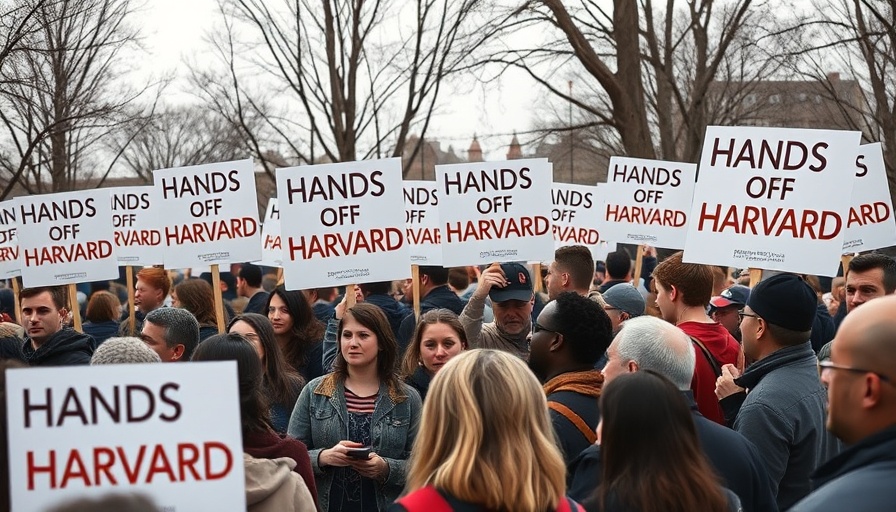
Harvard's Controversial Stance: Should Taxpayer Money Fund Intellectual Bigotry?
Harvard University is facing an increasingly fiery debate over its alleged tolerance of antisemitism within its academic community. Advocates for increased civil rights protections argue that the university's current environment, which many perceive as discriminatory, is not compatible with federal funding—potentially as much as $9 billion annually. The university has been criticized for allowing a climate of hostility towards Jews, particularly following recent events that amplified this animosity.
Understanding the Federal Funding Debate: Why It Matters
The crux of the matter lies in the federal funding that institutions like Harvard receive. Title VI of the Civil Rights Act stipulates that any institution that practices discrimination cannot access federal funds. With Harvard’s reported patterns of fostering an intolerant climate, many believe taxpayers should no longer be financially responsible for the institution. As public scrutiny increases, questions loom over whether the status quo can persist without accountability or reform.
The Left's Double Standards: A Closer Look
Critics argue that Harvard's left-leaning faculty creates a culture that not only overlooks antisemitism but actively perpetuates it. They draw attention to the perceived hypocrisy in how the university reacts to various forms of discrimination; for example, behaviors that would be swiftly condemned if directed at racial minorities are often tolerated when aimed at Jewish individuals. This perceived double standard is fueling calls from both political ends for stricter guidelines around compliance and federal funding.
Recent Events: Fueling Calls for Action
The recent surge in violence and hostility towards pro-Israel sentiments post-October 7 events has intensified criticism of Harvard's stance. Demonstrations protesting the university’s management of free speech and its failure to protect students from antisemitic sentiments have gained traction, reflecting a broader social concern over campus environments across the nation. The juxtaposition of academic freedom against the necessity of a safe learning environment remains a critical debate, as students call for their university to do better.
Financial Implications: The Cost of Inaction
Harvard boasts an endowment of over $50 billion, raising important questions about the financial priorities of a prestigious institution. If the university continues to embrace policies that some view as exclusionary or discriminatory, it risks alienating potential donors and alumni who may no longer feel comfortable funding an institution that appears to support bigotry. Reallocating funds away from federal support could result in tough decisions about resource allocation and university programs.
The Path Forward: Opportunities for Reform
What steps should Harvard take to reconcile these ongoing issues? Open forums, transparent discussions, and actionable policies against discrimination could pave the way for a constructive approach. Engaging with students, listening to their concerns, and fostering a culture of accountability might help restore trust in the institution. Such reforms could not only benefit Harvard’s community but also serve as an example for other universities facing similar challenges.
A Broader Conversation: Understanding National Context
This contentious issue does not exist in a vacuum. Across the United States, universities are grappling with similar problems, raising alarms as campuses become battlegrounds for ideological wars. Discussions around free speech, academic integrity, and moral responsibility take center stage as institutions strive to balance promoting free thought with ensuring safe environments for students from all backgrounds.
As the national debate continues, we must ask ourselves the hard questions. Should federal funding be contingent on a university’s treatment of its diverse student body? Should taxpayers support institutions that are perceived as enabling bigotry? These discussions remind us that academia is not just a haven for ideas but also a reflection of societal values and ethics.
Therefore, it is crucial for citizens to remain engaged and informed about how universities operate, especially when taxpayer dollars are at stake. The choices made today will shape the educational landscape for generations to come.
To ensure you stay informed on this critical issue and others like it, explore breaking news articles and stay engaged with the conversations that matter most.
 Add Element
Add Element  Add Row
Add Row 



 Add Row
Add Row  Add
Add 


Write A Comment